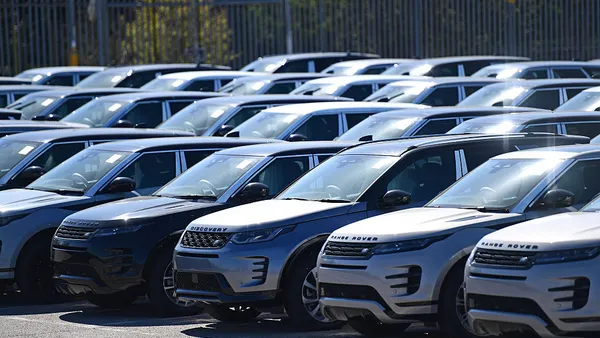Editor's note: This story is part of the WardsAuto digital archive, which may include content that was first published in print, or in different web layouts.
On the retail automotive front, there is good reason to be excited. The economy is starting to rebound and consumer confidence on the rise. We are seeing optimistic forecasts for retail auto sales, while government intervention is no longer key to survival.
While I'm cautiously optimistic about the general economic recovery, I am even more optimistic about the overall prospects for domestic dealers.
For the first time in many years, instead of simply competing against each other, domestic dealers should be able to lace up and compete toe-to-toe on product with import brands.
It wasn't that long ago when a Ford dealer's greatest competition wasn't Toyota, Honda or even Chevy dealers, but rather other Ford dealers.
The same could be said for General Motors and Chrysler dealers. For years, domestic dealers primarily competed against each other and cannibalized sales from the same brands.
With an over-saturation of domestic dealers, flood of manufacturer incentive money, and a rash of quality issues plaguing U.S. manufacturers, domestic dealers found themselves pitted against each other.
Meanwhile, import brands such as Nissan, Honda, BMW, VW and Toyota gained market share.
Few domestic dealers would want to relive the past few years, but most will agree they now find themselves in a more competitive position.
Over the last few years, we have watched over 2,500 dealers, mostly domestic, close their doors either by manufacturer termination, consolidation or business failure.
In many ways, the past few years have been like a forest fire that devastating spread across the automotive landscape.
Like most forest fires, however, there tends to be a rejuvenating effect that follows, allowing re-growth that is better than what was there before. For the retail automotive landscape, surviving dealers now are on more solid and fertile ground.
While it may seem long ago, about 20 years ago domestic brands ruled, while Honda and Toyota were still considered emerging franchises.
The 1990s and early 2000s allowed the domestics to stay in the game with their trucks and SUVs. But with the growth of popularity built on years of reliability, the imports found themselves perfectly positioned to take over in the last decade.
As the consumer focus and market shifted in the import direction, domestic auto manufacturers suddenly seem dated and almost obsolete.
It is truly amazing what a difference a few years and a few major recalls can make.
When looking at the history of the American automotive dealer, (other than in the early 1900s when the automotive industry was taking off and there where hundreds of manufacturers), it seems clear that there has seldom been as level a playing field between multiple manufacturers as there is now.
Unlike the last 50 years, when one could predict with a certain level of accuracy which manufacturer would take the lead in the coming three to five years, the next decade will not allow such easy predictions.
Much like the NFL, where dynasties seem to be a thing of the past, the parity among brands currently in auto retailing will make the coming decade likely one of the most exciting in history.
This heightened competitiveness among manufacturers bodes well for all dealers, both domestic and import. True competitiveness fuels innovation and quality.
The art of the sale and a genuine approach to customer service is something that a good number of volume or hot-brand dealers lost sight of in recent years. At the same time, in order to survive, many domestic dealers have been honing their customer-service tactics.
The game is back on for domestic dealers to compete with imports. Regardless of the brand, the best dealers will win.
Phil Villegas is a Principal at Dealer Transactional Services, LLC. (an affiliate of Morrison, Brown, Argiz & Farra, LLP) in Miami. He is at [email protected] or 305-318-8515.
Questions or comments about this column?
Send us an e-mail at [email protected].












